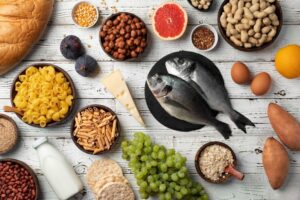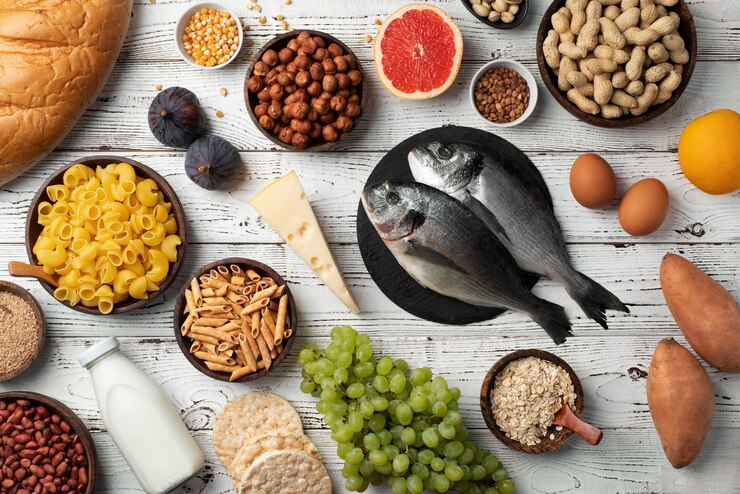
Foods Rich in Proteins: Boosting Health and Wellness
Introduction
Proteins are essential macronutrients that play a crucial role in building and repairing tissues, producing enzymes and hormones, and maintaining overall health. Incorporating foods rich in proteins into your diet is vital for optimal body function and muscle growth. In this article, we will explore various protein-packed foods that can enhance your nutritional intake and support a healthy lifestyle.
The Importance of Proteins
Muscle Growth and Repair
Proteins are the building blocks of muscles. Consuming foods rich in proteins helps repair muscle tissues after intense workouts, promoting faster recovery and muscle growth. For athletes and fitness enthusiasts, protein intake is essential for achieving peak performance and maintaining muscle mass.
Satiety and Weight Management
Eating foods rich in proteins can aid in weight management. Protein-rich foods increase feelings of fullness and reduce appetite, helping you consume fewer calories. This can be particularly beneficial for those aiming to lose weight or maintain a healthy weight.
Top Protein-Rich Foods
Lean Meats
Lean meats, such as chicken, turkey, and beef, are excellent sources of high-quality protein. Chicken breast, in particular, is a favorite among fitness enthusiasts due to its low fat content and high protein density. Grilling or baking lean meats preserves their nutritional value while keeping the calorie count low.
Fish and Seafood
Fish and seafood offer an abundance of proteins along with healthy fats like omega-3 fatty acids. Salmon, tuna, and mackerel are among the best choices for boosting protein intake. Additionally, these options provide essential vitamins and minerals that support overall health.
Eggs
Eggs are a versatile and affordable source of protein. Each egg contains about 6 grams of protein, making them a convenient option for breakfast, lunch, or dinner. Moreover, eggs provide essential amino acids, which are the building blocks of proteins.
Dairy Products
Dairy products, such as milk, yogurt, and cheese, are rich in proteins and calcium. Greek yogurt, in particular, stands out for its high protein content and probiotic benefits. Including dairy in your diet can strengthen bones and support muscle function.
Legumes and Beans
Legumes and beans, such as lentils, chickpeas, and black beans, are excellent plant-based protein sources. They are also rich in fiber, promoting digestive health and keeping you feeling full longer. Incorporating these foods into salads, soups, and stews can enhance both flavor and nutrition.
Nuts and Seeds
Nuts and seeds, including almonds, chia seeds, and flaxseeds, provide a healthy dose of proteins along with essential fatty acids. They make for convenient snacks and can be easily added to smoothies, oatmeal, or yogurt for an extra protein boost.
Tofu and Tempeh
For those following a vegetarian or vegan diet, tofu and tempeh are fantastic protein-rich alternatives. Made from soybeans, these foods offer a complete protein profile, meaning they contain all essential amino acids. Marinating and grilling tofu or tempeh can create delicious and nutritious dishes.
Enhancing Your Protein Intake
Balanced Diet
While focusing on foods rich in proteins, it’s crucial to maintain a balanced diet that includes carbohydrates, fats, vitamins, and minerals. Combining protein sources with whole grains, fruits, and vegetables ensures a well-rounded nutritional intake.
Meal Planning
Effective meal planning can help you incorporate more protein into your diet. Preparing protein-rich snacks, such as hard-boiled eggs, yogurt parfaits, or hummus with veggies, can keep you fueled throughout the day. Planning meals around lean meats, fish, or plant-based proteins ensures you meet your daily protein needs.
Conclusion
Incorporating foods rich in proteins into your diet is essential for muscle growth, weight management, and overall health. From lean meats and fish to legumes and dairy products, a variety of protein sources can cater to different dietary preferences and needs. By understanding the importance of proteins and making conscious dietary choices, you can enhance your nutritional intake and support a healthier lifestyle. Enjoy the benefits of a protein-rich diet and experience the positive impact on your health and well-being.
